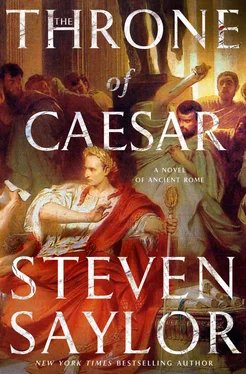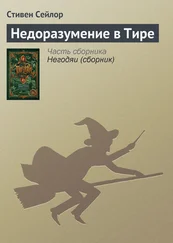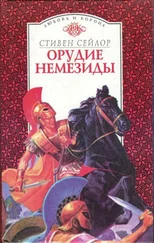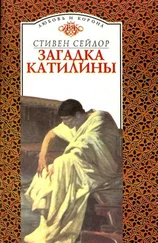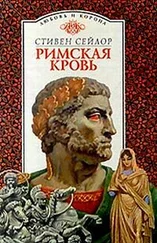Стивен Сейлор - The Throne of Caesar
Здесь есть возможность читать онлайн «Стивен Сейлор - The Throne of Caesar» весь текст электронной книги совершенно бесплатно (целиком полную версию без сокращений). В некоторых случаях можно слушать аудио, скачать через торрент в формате fb2 и присутствует краткое содержание. Год выпуска: 2018, Издательство: St. Martin's Press, Жанр: Исторический детектив, на английском языке. Описание произведения, (предисловие) а так же отзывы посетителей доступны на портале библиотеки ЛибКат.
- Название:The Throne of Caesar
- Автор:
- Издательство:St. Martin's Press
- Жанр:
- Год:2018
- ISBN:нет данных
- Рейтинг книги:5 / 5. Голосов: 1
-
Избранное:Добавить в избранное
- Отзывы:
-
Ваша оценка:
- 100
- 1
- 2
- 3
- 4
- 5
The Throne of Caesar: краткое содержание, описание и аннотация
Предлагаем к чтению аннотацию, описание, краткое содержание или предисловие (зависит от того, что написал сам автор книги «The Throne of Caesar»). Если вы не нашли необходимую информацию о книге — напишите в комментариях, мы постараемся отыскать её.
The Throne of Caesar — читать онлайн бесплатно полную книгу (весь текст) целиком
Ниже представлен текст книги, разбитый по страницам. Система сохранения места последней прочитанной страницы, позволяет с удобством читать онлайн бесплатно книгу «The Throne of Caesar», без необходимости каждый раз заново искать на чём Вы остановились. Поставьте закладку, и сможете в любой момент перейти на страницу, на которой закончили чтение.
Интервал:
Закладка:
“You must go to Mamercus, of course. His shop is on the so-called Street of the Ironmongers. His family has been in the business for generations. Mention my name and I’m sure he’ll treat you very well.”
“Excellent! Davus, you’ll remember that, won’t you?”
“Mamercus the tailor, Street of the Ironmongers,” said Davus slowly, as if learning a foreign phrase.
Having been complimented and beseeched for a favor that cost him nothing, Spurinna finally let down his guard. I detected a slight relaxation around his mouth and a more friendly glimmer in his eyes.
I lowered my voice. “But what can you tell me about this threat to Caesar, the one you’ve foreseen? I can’t help but be curious. You are, after all, the foremost haruspex in Rome.” Additional flattery relaxed him even more. “Did your divination shed light on the nature of the threat? Did it point to any particular individuals, or even the sort of men who might be involved? ”
“I see that you’re genuinely worried about our mutual benefactor,” said Spurinna, “so I’ll tell you what I can.” He raised a finger to his bearded chin and furrowed his brow; one side of his face looked more thoughtful than the other. “You presume the threat to Caesar is from other mortals. In fact, it could be from some natural danger. It might even emanate from some divine agency.”
“But if that’s the case, of what use is a warning? How is Caesar to avert such a nebulous threat?”
“Prudence. The Dictator must avoid every kind of accident that might naturally occur in the course of a day—a fall down stairs, a slip at the baths, a burn from a flaming brazier. He must do nothing to incite the wrath of any deity. He must make every proper sacrifice and observe all rituals necessary to placate the gods. He must ward off witchcraft—Calpurnia can help him with that—for if the threat is indeed human, it might arise not from his rivals or enemies but from their wives … or widows.”
“And there are so many widows in Rome.” I sighed. “Such a wide array of threats!”
“Mortal dangers beset every man, every day, but for Caesar the peril is acute, and will remain so until the thirty days have passed.”
“Then may the Ides come and go swiftly.”
“Indeed,” said Spurinna.
“Indeed!” echoed Davus, with surprising vehemence. When I gave him a curious look, he added, “For after the Ides you’ll really be a senator, and think how pleased our wives will be.”
Spurinna gave Davus a wry glance. Half of his face looked incredulous and the other half amused. He laughed. “How wise you are, big fellow. In the end, it all comes back to pleasing our wives and mothers, doesn’t it? That’s so even with Caesar.”
It seemed to me unlikely that Caesar’s career owed much to pleasing Calpurnia, or Cleopatra, or any other female. Spurinna saw the doubt on my face.
“It’s true, Finder. You must know the story of Caesar’s dream the night before he forded the Rubicon. To cross that boundary with his army meant that civil war would inevitably commence. And what did he dream the night before? That he slept with his mother.”
I nodded. Meto had told me the story. How had Spurinna heard it, from Calpurnia? Did everyone in Rome know?
“And far from putting him off,” said Spurinna, “the dream spurred him on to cross the Rubicon and fulfill his destiny— to please his mother, don’t you see?”
I blinked. “Is that your interpretation?”
“What other is there?”
“I should have thought…” I hesitated. “I should have thought that the maker of our dreams was warning Caesar that by marching on Rome he was about to commit an unnatural act.”
“Nonsense!” said Spurinna. “That’s why I’m a haruspex and you are not.”
“True. The work of reading omens would never suit me.”
“The role of a senator will suit you much better, I think.”
“I have my doubts about that, but it’s kind of you to say so.”
I decided I rather liked the man, despite our different ways of looking at the world. It also seemed to me that Spurinna posed no threat to Caesar. Nor did he have anything useful to say, if such a threat existed.
XIV
“Shall we go to that tailor the haruspex recommended?” asked Davus as we made our way down the street in front of Spurinna’s house. “I remember the name and the location.”
“So do I, Davus. But on a matter as weighty as having a toga fitted, surely I should get a second opinion. I think we have time for another visit before midday. If I remember correctly, down that street there is the house where Marcus Junius Brutus lives. I wonder if he might receive an unexpected visitor?”
The house of Brutus was far less ostentatious than that of Spurinna. There was often such a distinction between the old and the new in Rome. Ancient as Spurinna’s Etruscan bloodline might be, in Rome he was very much a newcomer and always would be, whereas no one in Rome could claim a pedigree as old and distinguished as that of Brutus, who descended from the Brutus who drove out the last king and founded the Republic more than four hundred years ago. Such a man has no need of decorations and ornaments to proclaim his arrival. He had arrived even before he was born.
So I was not surprised to see that his residence looked, more than anything else, old. Among all the surrounding houses, it looked by far the oldest. The architecture was plain and simple. The clay tiles along the roofline were chipped and weathered. The stone steps leading up to the door had been worn in the middle from countless footsteps.
To those footsteps I added my own and those of Davus. Even the door was old and chipped, especially around the much-used peephole where an eye perused us for a long moment before the door swung open on creaking hinges.
We were led down a long gallery. From niches on both sides the death masks of scores of ancestors gazed sternly. Among them, set in a niche of honor slightly larger than the rest, I recognized the bearded, austere countenance of Lucius Junius Brutus, founder of the Republic.
Once past this intimidating display of ancestry, I found the interior of the house to be no less simple than the exterior. There was not much furniture in the room where we were invited to wait, and the pieces looked exceedingly uncomfortable; it was as if cushions and chairs with backs had not yet been invented. One wall had been painted with some sort of scene, perhaps of a hunt, but the image was so faded I could hardly make it out.
The most striking feature of the room was its terra-cotta statuary. Unlike the splendidly preserved pieces in Spurinna’s house, these specimens, displayed on simple pedestals, appeared to be mere fragments—bits of geometric and vegetal decoration, a gigantic horse’s head, and remnants of a masculine figure, including a large hand clutching a rein. Like those of Spurinna, these pieces were almost certainly of Etruscan manufacture. Etruscan artisans introduced terra-cotta statuary to Rome, including the giant statue of Jupiter with his chariot and horses atop the original temple of the god on the Capitoline Hill, a structure long ago lost to fire and demolished and rebuilt.
I peered at one of the fragments—a leaflike architectural device the size of my head with chipped edges and much-faded color—and suddenly realized what I was seeing. These pieces called to mind the fabled quadriga of Jupiter atop the temple because they were that statue, or what remained of it. The disembodied hand holding a rein was not just any hand, but was the hand of Jupiter himself, and not just any Jupiter, but one of the oldest images of the god ever created for the city of Rome .
I let out a small gasp, just in time for my host to hear. Had I contrived it intentionally, I could have devised no better way to ingratiate myself, for he knew at once the reason for my surprise.
Читать дальшеИнтервал:
Закладка:
Похожие книги на «The Throne of Caesar»
Представляем Вашему вниманию похожие книги на «The Throne of Caesar» списком для выбора. Мы отобрали схожую по названию и смыслу литературу в надежде предоставить читателям больше вариантов отыскать новые, интересные, ещё непрочитанные произведения.
Обсуждение, отзывы о книге «The Throne of Caesar» и просто собственные мнения читателей. Оставьте ваши комментарии, напишите, что Вы думаете о произведении, его смысле или главных героях. Укажите что конкретно понравилось, а что нет, и почему Вы так считаете.
